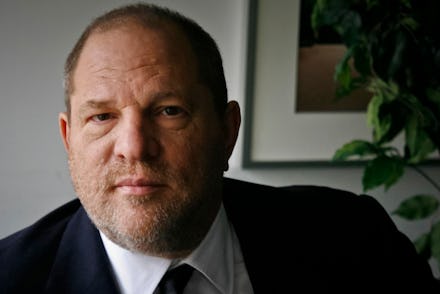New York Attorney General Schneiderman sues Harvey Weinstein

On Sunday evening, New York Attorney General Eric Schneiderman filed a lawsuit against the Weinstein Company and its disgraced cofounders, Harvey and Bob Weinstein.
According to the lawsuit, the complaint seeks to rectify “a years-long gender-based hostile work environment, a pattern of quid pro quo sexual harassment and routine misuse of corporate resources for unlawful ends.”
“To work for Harvey Weinstein was to work under a persistent barrage of gender-based obscenities, vulgar name-calling, sexualized interactions, threats of violence and a workplace generally hostile to women,” the suit claims.
If true, the allegations in Schneiderman’s lawsuit, which include the claim that women at TWC were forced to help Harvey Weinstein procure sexual partners, reveal a fuller picture of the disgraced mogul’s alleged abuses, providing disturbing specifics about what it was allegedly like to work under one of the most powerful producers in Hollywood.
Among its many complaints, the suit alleges that Harvey Weinstein would call the women who worked at TWC “cunt” or “pussy” if they performed a task incorrectly. Elsewhere, it alleges that women sought to avoid being the targets of “unwanted touching, leering or remarks” by wearing attire that covered more of their body. Their decision to dress less revealingly in the workplace allegedly prompted Harvey to bring in a female TWC staffer from London to teach female assistants in the New York office how to dress to keep Harvey happy.
Harvey Weinstein hurled sexist and homophobic insults at men he sought to humiliate in the workplace, the lawsuit claims. At one point, Schneiderman alleges that Harvey fired a male assistant for being “just a fucking faggot boy, a stupid fucking faggot boy.” Another complaint alleges that the TWC cofounder humiliated a male executive at his company by asking other TWC executives if they could “smell his pussy.”
In a statement obtained by the Los Angeles Times, Schneiderman’s office described the full litany of alleged abuses at the Weinstein Company detailed in the suit as “egregious violations of New York’s civil rights, human rights and business laws.”
Ever since the New York Times first published its story surfacing decades of women’s complaints against Harvey Weinstein in October, over 80 women have accused the producer of “inappropriate to criminal behavior.” In the immediate aftermath of the Times’ story, TWC fired him.
The demise of Weinstein’s career kicked off the #MeToo era, an unprecedented cultural reckoning seeking justice for the victims of sexual misconduct that has seen the fall of powerful men in media, entertainment and politics.
Feb. 11, 2018, 6:30 p.m.: This story has been updated.